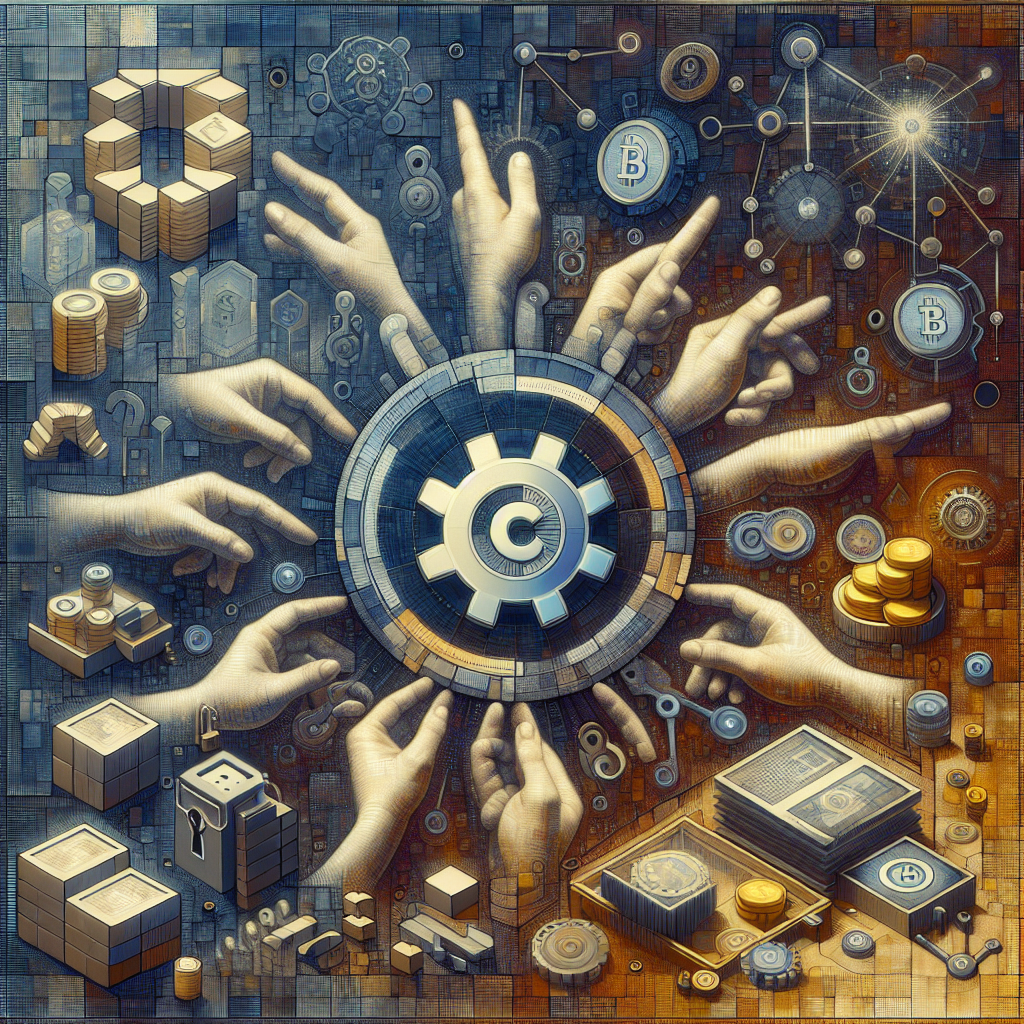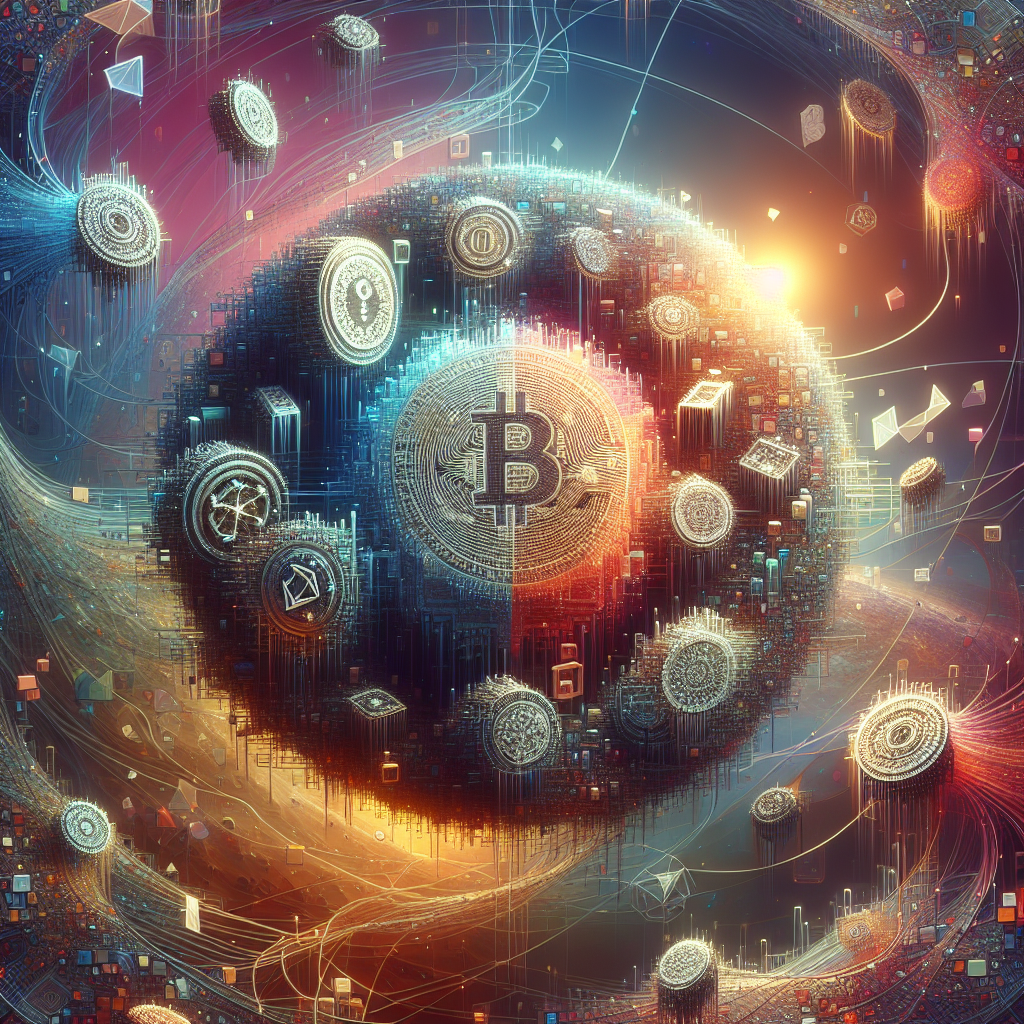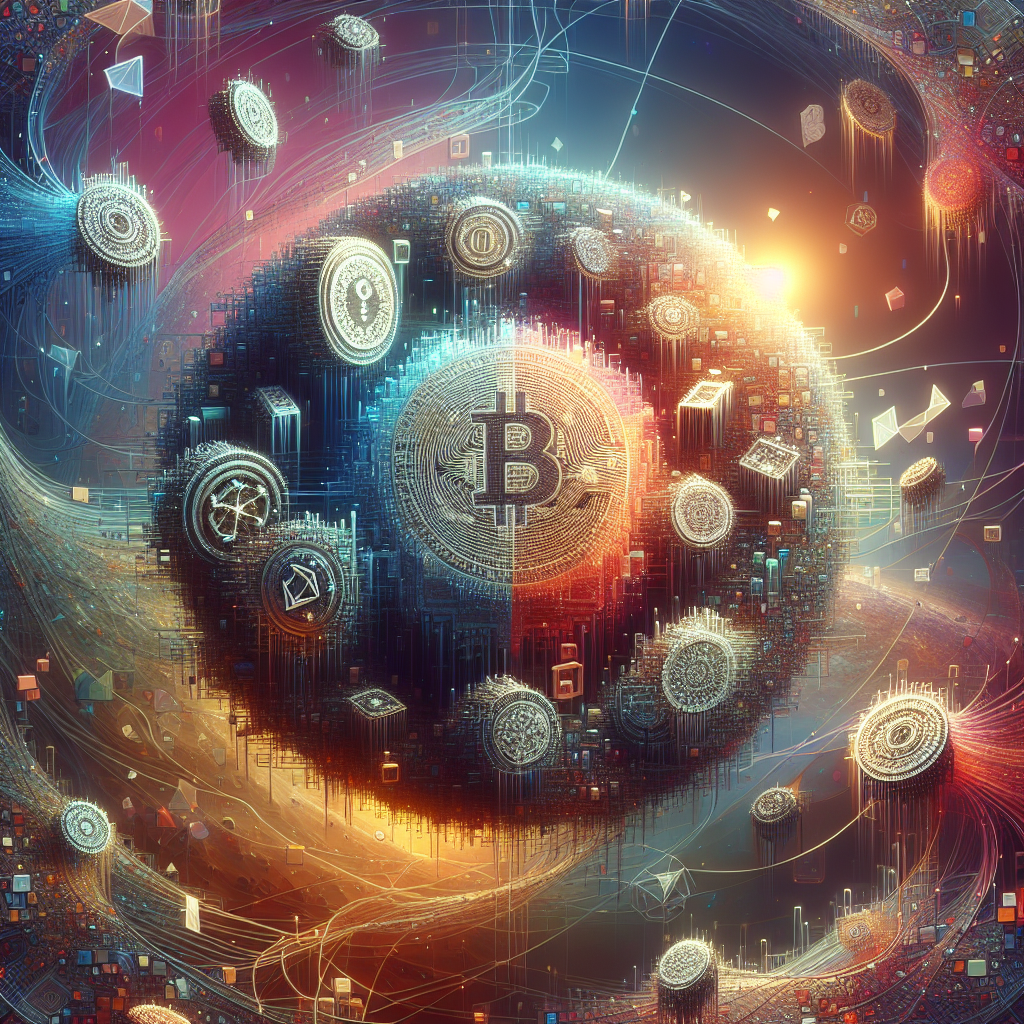In the world of decentralized protocols, governance tokens play a crucial role in shaping the decision-making process. These tokens provide holders with the power to influence and participate in the governance of the protocol, allowing them to vote on proposals and have a say in the platform’s direction. With the rise of decentralized finance (DeFi) and other innovative applications, understanding the role of governance tokens becomes increasingly important as they enable communities to collectively govern and shape the future of these protocols. So, let’s explore the fascinating world of governance tokens and the impact they have on decentralized platforms.

Introduction
Welcome to the world of decentralized protocols and governance tokens! In this article, we will explore the role and importance of governance tokens in decentralized protocols, such as those found in the world of decentralized finance (DeFi).
Defining Governance Tokens
What are governance tokens?
Governance tokens are an integral part of decentralized protocols, serving as a means to distribute decision-making power and influence within a community. These tokens are designed to enable token holders to participate in the governance and decision-making processes of a protocol.
Features of governance tokens
Governance tokens possess various features that make them unique and vital to decentralized protocols. One of the key features is the ability to vote on proposals and changes within the protocol. These tokens also often provide rewards to holders based on their participation and contributions.
Importance of Governance Tokens
Enhancing decentralization
Governance tokens play a crucial role in enhancing the decentralization of protocols. By giving token holders the power to influence decision-making processes, decentralized protocols can avoid centralized control and ensure that important decisions are made collectively and democratically.
Empowering token holders
With governance tokens, holders have a direct say in shaping the future of a protocol. This empowerment enables them to actively participate in the governance process, giving them a sense of ownership and responsibility for the protocol’s success. This engagement can lead to a stronger and more resilient protocol ecosystem.
Influencing decision-making
Governance tokens enable token holders to have a tangible impact on the decision-making process of a decentralized protocol. By voting on proposals and changes, token holders can influence the direction and development of the protocol, ensuring that it aligns with their values and preferences.
Encouraging community participation
By providing governance tokens, protocols incentivize community members to actively participate in the governance process. This participation fosters a sense of community ownership and collaboration, creating a more inclusive and vibrant ecosystem.
Functions of Governance Tokens
Voting power
One of the primary functions of governance tokens is to grant holders the power to vote on proposals and changes within the protocol. This voting power allows token holders to exercise their influence and shape the protocol’s future direction.
Governance proposals
Governance tokens enable token holders to create and submit proposals for changes or improvements to the protocol. These proposals can range from technical upgrades to modifications in the protocol’s parameters, providing a mechanism for token holders to actively contribute to the protocol’s development.
Reward mechanisms
Governance tokens often offer various reward mechanisms to incentivize token holders to actively participate in the governance process. These rewards can come in the form of additional tokens or other benefits, encouraging continuous engagement and participation.
Staking and delegation
Some governance tokens allow holders to stake their tokens and delegate their voting power to other individuals or entities. This feature promotes delegation of decision-making authority, encouraging more widespread participation and allowing token holders to contribute even if they are unable to actively engage in the voting process.

Different Types of Governance Tokens
Utility tokens
Utility tokens are governance tokens that provide holders with access to specific services or functionalities within the protocol. These tokens grant voting power and enable participation in governance, while also offering utility within the ecosystem.
Stablecoins
Stablecoins, such as those pegged to a fiat currency, can also function as governance tokens. These tokens provide stability to the protocol while allowing holders to participate in the governance process and exercise their voting power.
Non-fungible tokens (NFTs)
Non-fungible tokens represent unique assets or collectibles and can also serve as governance tokens. These tokens provide holders with the ability to participate in the governance process while also offering unique benefits or privileges related to the NFT itself.
Challenges and Limitations
Lack of voter turnout
One of the challenges faced by governance tokens is the low voter turnout for important proposals and decisions. Despite the availability of governance mechanisms, a significant portion of token holders may choose not to participate, potentially leading to suboptimal decision-making and outcomes.
Sybil attacks
Governance tokens are susceptible to Sybil attacks, wherein an individual or entity holds a significant number of tokens, accruing disproportionate power within the governance process. These attacks can undermine the democratic nature of decentralized protocols and hinder fair decision-making.
Centralized holders
In some cases, governance tokens may be concentrated in the hands of a small number of centralized entities. This concentration of power can lead to decisions that may not align with the broader interests and preferences of the community, potentially compromising the decentralized nature of the protocol.
Power concentration
Certain governance models may result in power being concentrated in the hands of a few influential token holders. This concentration can limit the participation of smaller token holders and hinder the overall democratic nature of the governance process.
Regulatory concerns
Governance tokens and decentralized protocols may face regulatory challenges, as they blur the traditional boundaries of governance and ownership. Regulatory scrutiny and uncertainty can impact the adoption and growth of governance tokens, necessitating careful consideration of legal and compliance aspects.
Examples of Governance Tokens
MakerDAO (MKR)
The MakerDAO protocol, built on the Ethereum blockchain, utilizes the MKR token as its governance token. MKR holders have the power to vote on critical decisions, such as collateral types, stability fees, and system upgrades. The governance mechanism allows MKR holders to actively participate in shaping the direction of the decentralized lending platform.
Uniswap (UNI)
Uniswap, a popular decentralized exchange protocol, introduced the UNI governance token to enable community participation and decision-making. UNI token holders can vote on proposals related to the protocol’s development, fees, and even the allocation of the protocol’s treasury.
Compound (COMP)
COMP serves as the governance token for the Compound protocol, a decentralized lending and borrowing platform. COMP holders have the power to propose and vote on changes to the protocol’s parameters, such as interest rates and asset listings. The distribution of COMP tokens ensures that active participants and users of the protocol have a voice in governance.
Governance Tokens and Decentralized Finance (DeFi)
Incorporating governance in DeFi
Governance tokens have revolutionized the world of decentralized finance (DeFi) by allowing participants to actively shape the development and direction of DeFi protocols. The introduction of governance mechanisms in DeFi has shifted the decision-making power from central entities to the community, allowing for a more inclusive and democratic financial ecosystem.
Benefits of governance tokens in DeFi protocols
Governance tokens in DeFi protocols enable token holders to have a say in key decisions, such as adding new assets, adjusting interest rates, or changing protocol parameters. These tokens foster a sense of ownership and alignment of incentives, strengthening the resilience and sustainability of DeFi projects.
Future Outlook
Evolution of governance mechanisms
As the decentralized ecosystem continues to evolve, governance mechanisms are likely to become more sophisticated and diverse. Innovations such as quadratic voting, liquid democracy, and futarchy may emerge to address challenges and enhance the efficiency of decision-making within decentralized protocols.
Interoperability and collaboration
The future of governance tokens lies in their interoperability and collaboration across different protocols. With the rise of cross-chain solutions and interoperability frameworks, governance tokens may be able to transcend individual protocols, allowing token holders to participate in the governance of multiple interconnected ecosystems.
Conclusion
Governance tokens play an invaluable role in decentralized protocols, enabling token holders to actively participate in decision-making processes and shape the future of these protocols. By enhancing decentralization, empowering token holders, and fostering community participation, governance tokens are driving the evolution of decentralized finance and creating a more inclusive and democratic financial ecosystem. As the decentralized landscape continues to evolve, governance mechanisms will continue to play a vital role in shaping the future of decentralized protocols.

